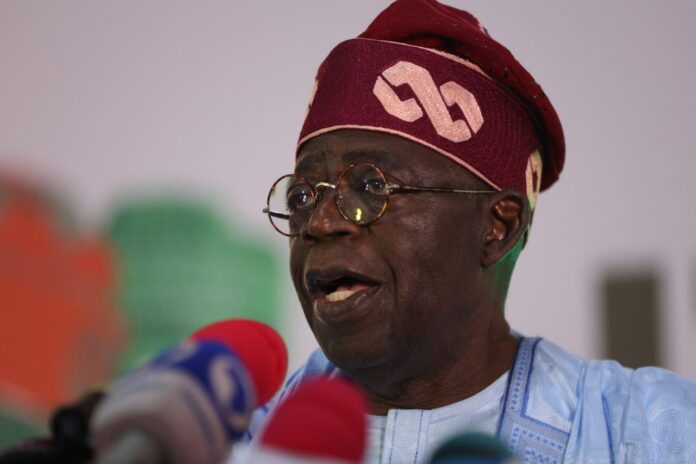Nigeria ripe for tech investments, Tinubu tells Samsung
President Bola Tinubu on Sunday said Nigeria’s tech environment is “absorptive and ready” for foreign investments.
He said the local investment environment operates on the principle of ‘a willing buyer and willing seller, which ensures seamless access to capital for investors both within and outside the country.
This was as he hailed Nigerian youths saying the youths in their determination to succeed do not wait for government.
“We have an infrastructure deficit and you can take advantage of that and invest early and deeply in an environment that is absorptive and ready for it.
“It is modeled after a willing-buyer and willing-seller arrangement. Easy capital in and easy capital out,” Tinubu told the President and Chief Executive Officer of Samsung, Hong Namkoong, and the Chairman of Samsung Investment Global, Jungwook Kim in Riyadh, Saudi Arabia.
The meeting took place on the margins of the World Economic Forum Special Meeting on Global Collaboration, Growth and Energy for Development.
Tinubu’s Spokesperson, Mr. Ajuri Ngelale, revealed the details of Sunday’s talks in a statement titled ‘President Tinubu to Samsung CEO: Nigeria is the best destination in terms of value for money; your technology with Nigerian ingenuity will create limitless opportunities.’
Tinubu marketed the ingenuity of Nigeria’s youth whom he described as “ready to learn” and therefore must be provided the opportunity to excel.
“Nigeria is a very huge country with a huge and able population. We have vibrant youths ready to learn and progress.
“In fact, our young do not wait for us. They go ahead of us in their determination to succeed.
“We must keep up and provide opportunities for them to excel,” he affirmed.
The President detailed the significant opportunities across sectors for investment within the Renewed Hope Infrastructure Development Fund, which involves the potential utilisation of co-finance instruments on critical infrastructure and technology which Samsung is well known to produce.
Tinubu also harped on the importance of deepening collaboration in the crude oil, natural gas, renewable energy, engineering, technology and agriculture sectors.
He emphasised the potential for vast private sector participation in the establishment of fully-embedded, off-grid, cold-chain integration across sub-industries in the agriculture sector to forestall post-harvest losses with mass refrigeration capacity.
“We are ready to discuss and discover one another more. We can benefit so much from a collaborative effort.
“You have the know-how, and we have the willingness. Seize this opportunity,’’ the President told the Samsung executives.
Samsung Chairman Kim expressed Samsung’s interest in expanding its presence in Nigeria, citing the successes of sister companies already operating in the country while laying out potential new opportunities in Nigeria.
“We have built many power stations around the world. We are top of the class in gas-fired power plant construction.
“We have an ever-increasing portfolio in the production of renewable energy solutions around the world.
“We can make a lot of progress in Nigeria’s energy sector as well as bringing our technology to other key productive sectors,” said Kim.
Enumerating other sectors of investment, he explained, “Transmission lines and smart grids are areas where we see increasing demand globally. You need infrastructure anywhere you go.
“We are good at metropolitan rail lines; we are good at bridge construction and any of these types of infrastructure projects, in addition to oil and gas engineering projects.
“We are looking forward to knowing Nigeria better under your leadership and to see how we can penetrate the Nigerian market deeper. This is a great opportunity for us.”
Nigeria’s trade relationship with South Korea has grown since it was first established in February 1980.
Bilateral trade volume reaching $1.73bn in 2023. Nigeria’s main exports to South Korea are crude petroleum, petroleum gas, and scrap copper.
Meanwhile, South Korea’s main exports to Nigeria include plastics and rubbers, mineral products, and machines.
The country’s Ambassador to Nigeria Kim Young-Chae has expressed interest in seeing Nigeria export more than just gas, suggesting room for growth in bilateral trade relations, particularly in agriculture and manufacturing sectors.
Punch
















